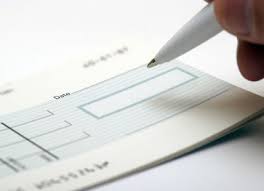1. If payment is made by means of a crossed
cheque, receipt need not be obtained.
2. It is also convenient to receive money.
3. Payment can be made to a particular person
by drawing up crossed “Account payee” cheques.
4. The cheque is ‘near money’ and hence is
endorsable from one person to another to settle the effects.
5. It minimizes the operation of legal tender
money and the bankers can operate with a less amount of cash reserves.
6. No need of counting cash while making
payment.
7. If a crossed cheque is lost, only a piece
of paper is lost, i.e., the amount remains intact.
8. If payments are made by cheques an
automatic record of the account is also maintained in the banker’s books.
Read More


